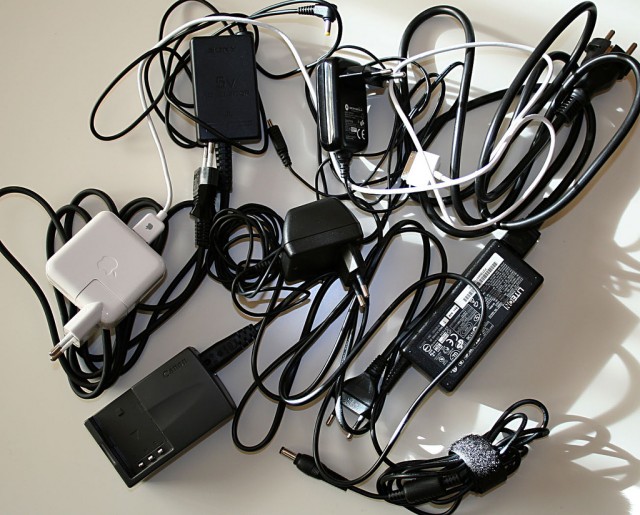
An international standards group is seeking to replace the various power cords for portable computers with a single charger that could theoretically power any laptop.
While non-Apple mobile phones are generally powered by micro-USB, allowing a charger for one device to be used with another, notebook computers still come with an assortment of chargers that are incompatible with one another. This week, the International Electrotechnical Commission (IEC) announced "the first globally relevant Technical Specification for a single external charger for a wide range of notebook computers and laptops."
The IEC has experience here, having previously developed a now widely used phone standard built on top of micro-USB.
The new specification for notebooks will be published in early 2014. Titled "IEC Technical Specification 62700: DC Power supply for notebook computer," it will cover "critical aspects of external chargers for notebook computers, their connector and plug, as well as safety, interoperability, performance, and environmental considerations," the IEC said.
The IEC hopes the standard will reduce the amount of electronic waste while making it easier to buy new chargers when an old one stops working. Although Apple is likely to keep using its proprietary MagSafe power adapters, the standard will hopefully be adopted by top PC vendors such as HP, Lenovo, Dell, and Acer.
A single type of charger to cover any consumer electronics device is probably a pipe dream, but the IEC believes widespread adoption of a laptop standard is realistic.
"Even though some organizations are discussing and examining the merits of a universal power adapter covering numerous ICT (Information and Communication Technology) devices, due to the technical realities, this is likely still a long way from being achievable," the group said. "Therefore, rather than chasing a dream that remains out of reach today, the IEC has leveraged its global technical expertise to bring concrete solutions to the market place."
reader comments
217